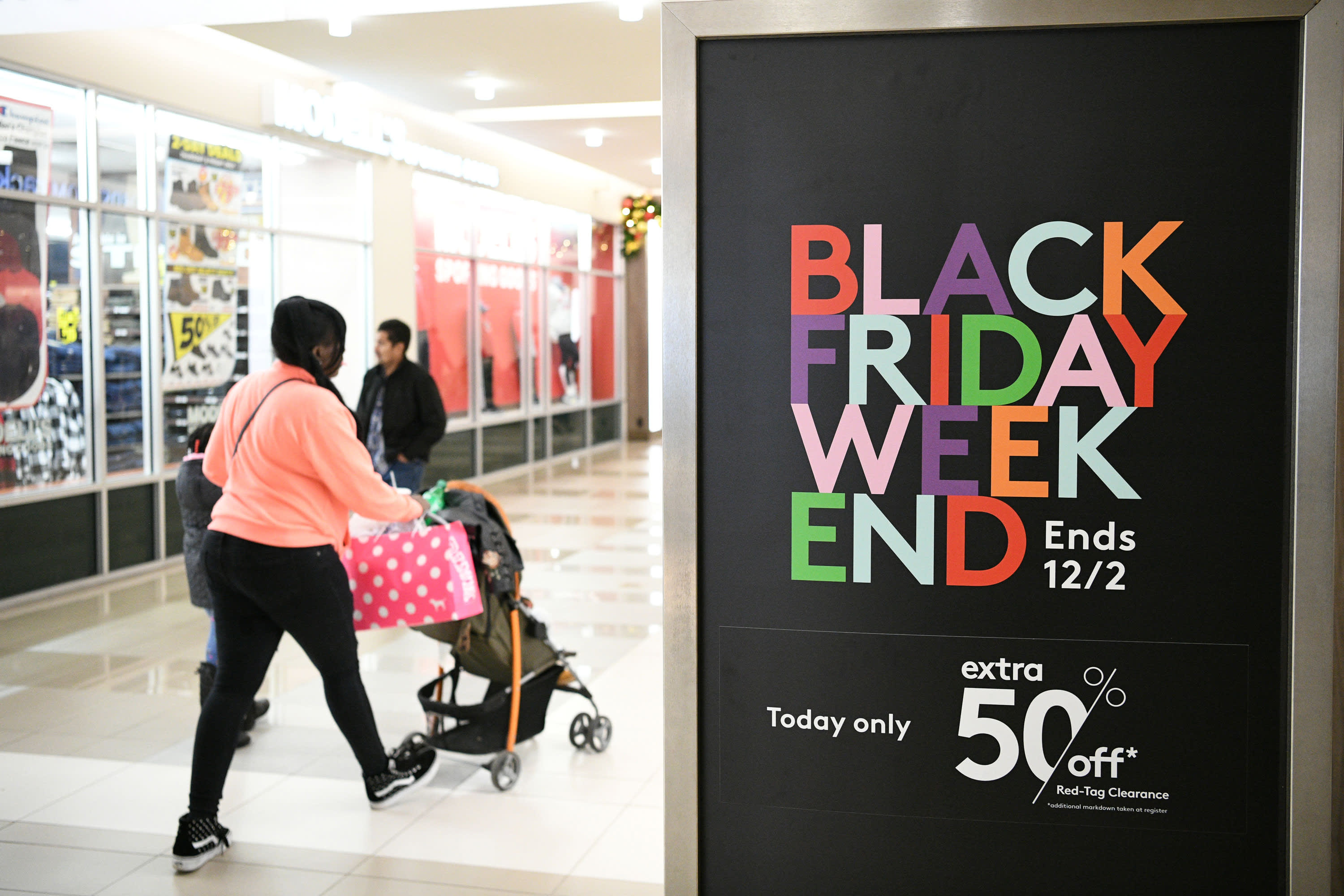Holiday crowds at the mall will be smaller this year: ShopperTrak predicts as much as 25% drop in shoppers

Black Friday might be losing its clout. But it is still expected to be the busiest day in stores during the 2020 holiday shopping season, according to a new report.
With the coronavirus pandemic prompting consumers to buy more online and avoid crowded spaces, though, people likely won’t be showing up in droves for doorbuster deals the day after Thanksgiving.
Traffic in retail stores is expected to be down 22% to 25% year over year during the six key weeks of the holiday season, a ShopperTrak forecast released Tuesday said.
“Black Friday in the past was so big, it was typically double the traffic of Super Saturday,” said Brian Field, a senior director of the retail consulting practice at ShopperTrak, which is part of Sensormatic Solutions. “It’s not going to be that way this year.”
Super Saturday, or the Saturday before Christmas, is when last-minute shoppers typically rush to stores, packing parking lots, to finish their gift lists. This year, it will be Dec. 19.
Hoping to elongate the season and avoid any last-minute shipping chaos in the final days leading up to Christmas, retailers are now stocking their shelves with holiday goodies even before Halloween. Companies are also spreading out sales events, and starting them in October, to give shoppers plenty of time to buy gifts. Notably, Amazon will hold its Prime Day sales event on Oct. 13-14, prompting rivals such as Target, Home Depot and Best Buy to hold rival deal days. And this could draw holiday dollars further forward.
If and when Americans head to the stores this holiday season, they’ll likely find extended hours and pop-up locations to help control crowds and keep shopping in person safe.
The predicted 10 busiest days, listed below, are expected to account for just 34.2% of all holiday traffic, compared with 46.5% a year ago, ShopperTrak said.
“All of these days are going to take hits,” Field said.
These are predicted to be the top 10 busiest days of the season, per ShopperTrak:
- Friday, Nov. 27 – Black Friday
- Saturday, Dec. 19 – Super Saturday
- Saturday, Dec. 26 – known as Boxing Day in some regions
- Wednesday, Dec. 23
- Saturday, Dec. 12
- Monday, Dec. 21
- Saturday, Nov. 28
- Tuesday, Dec. 22
- Saturday, Dec. 5
- Sunday, Dec. 20
While it’s still slated to be the busiest day of the season, Black Friday has been losing steam in recent years. Sales have been spreading through the entire weekend after Thanksgiving and into Cyber Monday. In 2019, Black Friday sales at retail stores dropped 6.2%, after shopping on Thanksgiving Day rose 2.3%, according to ShopperTrak data. This year, many retailers said their stores will be closed on Thanksgiving.
Still, even with store traffic expected to decline, holiday sales overall are forecast to grow this year. According to Deloitte, sales are expected to rise between 1% and 1.5%, amounting to between $1.147 trillion and $1.152 trillion during the November-to-January time frame.
The growth is stemming from digital surges. Globally, online sales are expected to grow 30% year over year to $940 billion this holiday season, compared with 8% growth in 2019, according to Salesforce’s 2020 forecast, issued earlier this month.
“Think about all the people who are going to be shopping from home,” ShopperTrak’s Field said.
All throughout the pandemic, ShopperTrak has been monitoring traffic in stores, which dropped substantially in March as shops deemed nonessential were forced shut and many people adhered to local lockdown orders. The firm said traffic fell as much as 82%, on a year-over-year basis, in April, and has since improved to being down 25.7% the week ended Sept. 19.
“What we’ve seen is a flattening of the week,” Field said, explaining the traffic patterns that have emerged during the pandemic. Shoppers are more often avoiding Saturdays, he said, choosing instead to head to stores midweek, when they perceive stores will be less crowded.




